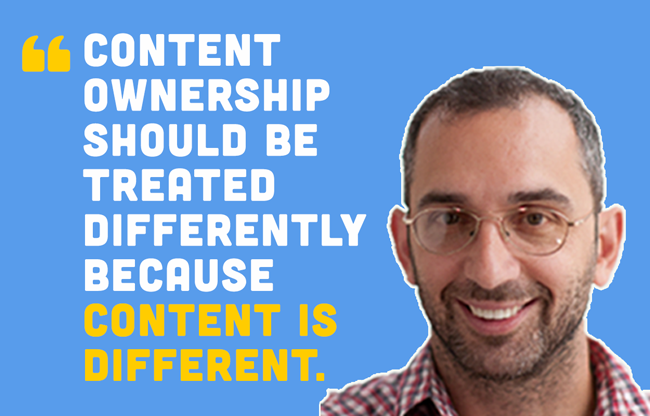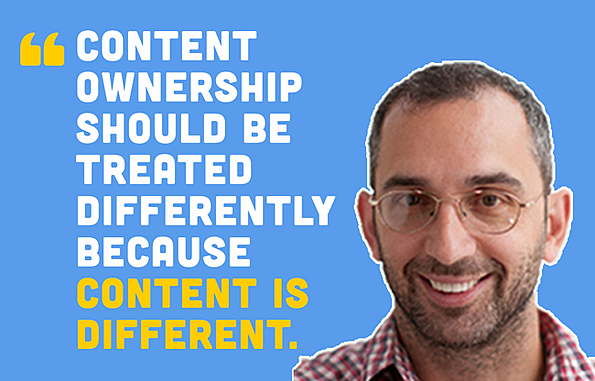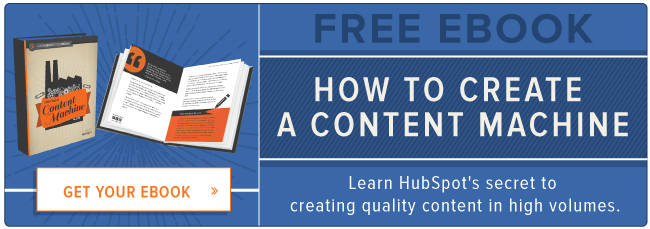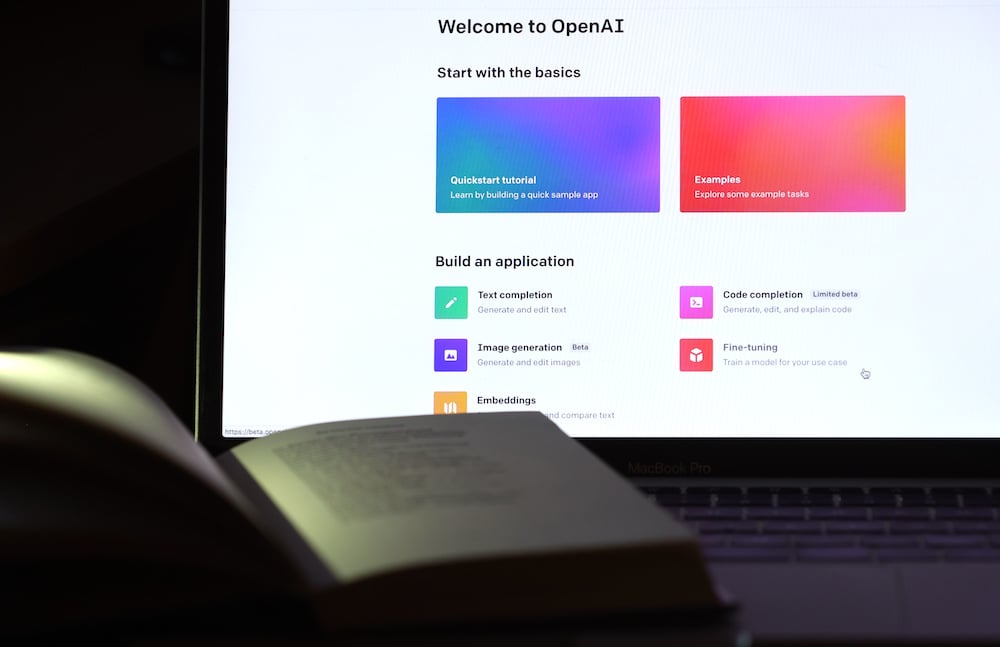 This blog post is part of the #GreatDebate series on content ownership. Learn more about the debate here.
This blog post is part of the #GreatDebate series on content ownership. Learn more about the debate here.

Employees should have as much ownership over the content they create as the companies that pay them to create it. Yet in our work-for-hire culture, the notion that an employer would forfeit any rights to intellectual property it commissioned seems counterintuitive, if not unthinkable. After all, if engineers don’t own the products they’re paid to build, then why should content creators be treated any differently?
Content should be treated differently because content is different. That’s why.
Content is unlike any other “product.” Customers don’t particularly care who assembles their automobile, carbonates their soft drink, or irons the decal on their ironic t-shirt. Heck, they barely seem interested in meeting the pilot who flies their family safely to its destination.
But just as newspaper subscribers want to know the names of the journalists that pen each article, so too do those who read your company’s blog posts, ebooks, and presentations. It’s this human connection, however tangential, that distinguishes content from other products. And companies are starting to realize that this human connection changes how they operate day-to-day.
How Companies Deal With This New "Product"
Smart companies take advantage of this need for association through conspicuous attribution. They give the writer’s “personal brand” equal or greater weight to the corporate brand. The notion of a company trading on the credibility of a staff worker is an entirely new dynamic -- as is the reality that if a piece content is criticized, it’s the author, not the company, that’s expected to come to its defense.
This modern phenomenon destabilizes the balance of power in the employer/employee relationship. The employee no longer solely creates a product or performs a service for the company; today she also allows the organization to draft off of her name.
In every transaction, both sides pay a price. And in this new reality, the company should -- and does -- lose some say in what content is produced, how it is produced, and how it is shared.
As with all things, extremes should be avoided. If an employee wants to create content that advances only his personal interests, then that individual’s agenda obviously breaks the boundaries of this emerging dynamic. But at the same time, if the company wants to dictate all terms of content creation, then it should consider a ghostwriting model because it runs counter to the tacit pact that’s being formed by socially connected creators and brands looking for credibility.
Should Employees Own Their Content?
When it comes to the push-and-pull over content ownership, the argument tends to center on what happens after an employee leaves the organization. Certainly the empowered employee presents some unfamiliar complexities like who owns the organization’s social media following, but when it comes to rights to the content itself, I think the answer is fairly simple: Both the company and the employee should own it.
When a reporter leaves a newspaper, the publisher doesn’t redact the contributor’s byline or replace it with a retained employee’s name. The attribution persists -- across all channels. Branded content should be no different. The byline should be permanently and inextricably linked to the asset itself.
Content co-ownership, like co-anything for that matter, can become wonky if rules and tools are assigned after the fact. The best way to avoid complications at the end of a relationship is to establish agreement in the beginning. A basic scenario may see the company agree to maintain employees’ byline post-separation and permit the staffer to display the content on his or her personal blog, LinkedIn profile, or SlideShare channel; however, it’s also reasonable for the employer to prohibit the employee from profiting from the content, through sale or lead generation for future employers. A win-win tool to help both parties in this scenario is Google Authorship, which associates the content with the author’s Google+ account -- thereby preserving the byline for the employee while contributing to search rank for the employer.
In the end, if brands are going to purport to be publishers, they should take cues from publishers. We might be living in a changing world, but some precedents have been set. We simply need to look outside our own industry for guidance, and then tailor those practices to our industry and organization.
What do you think? Do you agree or disagree that both employees and employers should own the content they create together? Share your thoughts on Twitter using the hashtag, #greatdebate, or tweet directly in the stream below.
Joe Chernov joins HubSpot later this month as VP of Content. He is presently the VP of Marketing for Kinvey, a mobile backend as a service startup in Boston, MA. Joe joined Kinvey from Eloqua, where he served as VP of Content Marketing. The Content Marketing Institute named him “Content Marketer of the Year” in 2012. He serves on the board of advisors for marketing tech startups Little Bird and TrackMaven. Joe occasionally contributes to Mashable, Content Marketing Institute, and other prominent marketing blogs.


![How to Collaborate with Brands as a Content Creator [Expert Tips]](https://blog.hubspot.com/hubfs/Untitled%20design%20%2865%29-1.jpg)







![How to Create a Curated Blog Post [+5 Free Blog Post Templates]](https://blog.hubspot.com/hubfs/create-curated-blog-post-templates_7.webp)